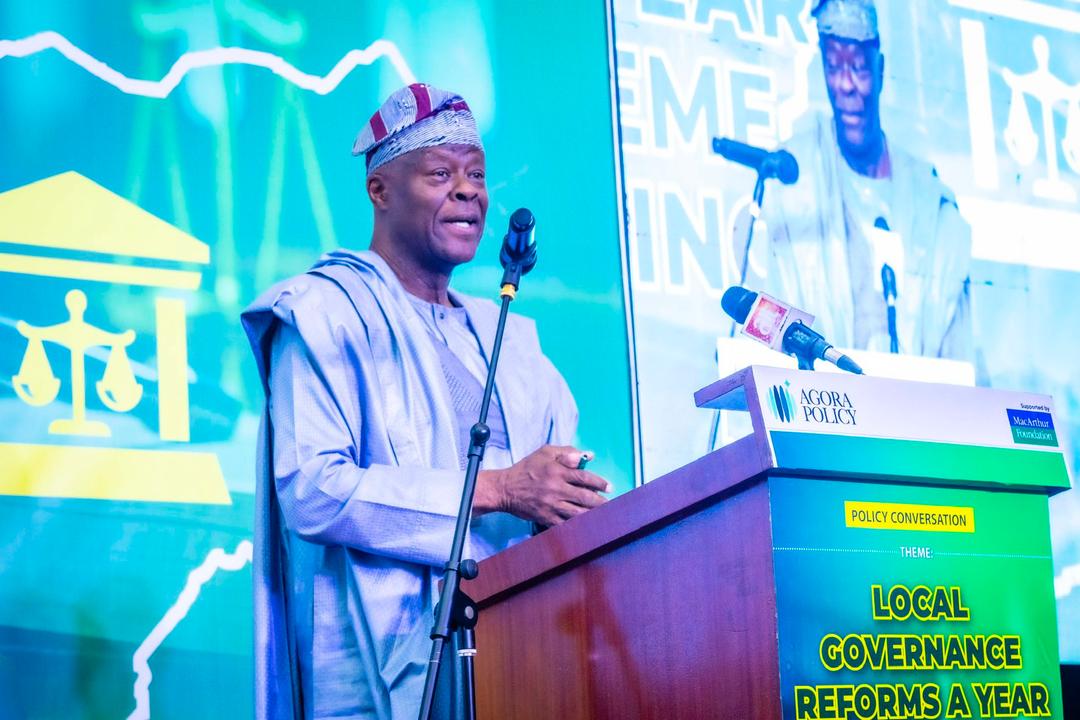The Federal Government of Nigeria has reiterated its unwavering commitment to empowering local government institutions in the country, viewing them as a fundamental pillar for achieving inclusive economic growth across Nigeria.
This pledge was made on Tuesday – by the Honorable Minister of Finance and Coordinating Minister of the Economy, Mr. Wale Edun, during a high-level policy dialogue organized by AGORA Policy with support from the MacArthur Foundation.
Honorable Minister Edun, emphasized that strengthening local governance is central to the Nigerian President, Bola Ahmed Tinubu’s strategy for poverty reduction. “Grassroots empowerment is not just a governance issue, it’s an economic imperative,” he stated.
The Minister highlighted the Federal Government’s recent compliance with the Supreme Court’s landmark ruling on local government autonomy, which mandates that only democratically elected local councils now receive direct allocations from the Federation Account.
He clarified that this is not a discretionary policy, but rather the government’s “constitutional obligation to uphold the judgment of the highest court of the land.”
To further solidify this shift, the Federal Government has rolled out several targeted initiatives. These include the Nutrition 774 Programme, Project 774 Digital Connectivity, and the World Banksupported HOPE Programme.

According to Edun, each of these interventions is specifically “designed to drive outcomes in human capital development, digital access, and local-level service efficiency — all critical to unlocking Nigeria’s long-term productivity.”
Mr. Edun underscored the significance of these initiatives, asserting, “These are not symbolic gestures. They are structured investments in governance that catalyse private sector confidence, reduce economic exclusion, and foster scalable development.” He concluded by calling for enhanced collaboration among all tiers of government, stressing that the full economic benefits of local government reform can only be realized through “strategic collaboration and policy discipline.”












